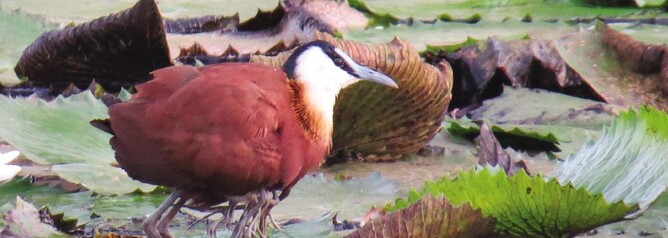Books and papers are filled with words. Just as with spoken words, you have to listen to them to understand them. I often tell my students to listen to the words when they read a book and to imagine the author speaking directly to them. This attitude has always helped me, especially when the words are difficult to understand.
Today is Wednesday. I always try to begin my day with the Word of God, but I am not always successful, especially if I sleep in. However, today I managed to wake up early. This morning, I read Jeremiah 37:11-15. Jeremiah is living through political turmoil. He had previously publicly warned the leadership that God willed a foreign imperial power to triumph over Jerusalem. In today’s passage, he attempts to leave Jerusalem to go and receive a piece of land, but he is arrested at the gate and accused of desertion. These are very strong words. Jeremiah is a prophet and he replies with even stronger words, ‘That is a lie’. The sentinel ‘would not listen’ to Jeremiah’s words. Nor would the officials. They have him beaten and imprisoned.
I turn to A Commentary on Jeremiah by Walter Brueggemann and read the section for this passage. Two comments catch my attention. First, that ‘Public policy in Jerusalem has become the practice of a corporate lie’. It is a dire warning about what can happen to public policy in any government. The second comment is in a footnote. The leaders in Jerusalem did not believe Jeremiah’s words about the fall of Jerusalem. The comment states that ‘Ideology when left uncriticised, renders discernment impossible beyond the close interests of its adherents.’ This profound statement immediately reminds me of Jesus’ condemnation of the religious leaders of his day for lacking discernment and being unable to read the signs of the times (Matthew 16:3). What does this mean for Christian missionaries? Are we able to read the signs of the times?
These words stick in my mind as I head out of the house for my 30-minute early morning walk. It’s 5.45 am. Some of the streets are quite steep, so I tramp up and down them while I continue to reflect on what I read. I pray as I am able, occasionally greeting a few workmen or neighbours passing by and stopping to look at a bird perched high on the electric wires. I end up down by the pond. Today, I don’t stop to sit and reflect as I usually like to do because I have to be at work by 9.00 am. So I walk around the far side of the pond and check on a lily trotter daintily walking across the lilies in search of its daily food. About a month ago, I first spotted four amazingly camouflaged eggs that she had laid. A few days later, I saw the first chick only minutes after it hatched. The next day when I went back, the chick and all the eggs were gone. I thought that possibly some of the birds of prey that hang around or a monitor lizard that occasionally invades the pond may have had a feast. Sad but hopeful, I kept checking, until one day, I spotted four tiny little chicks darting across the lilies. I was delighted to see that the chicks had survived. Then I noticed that whenever there’s danger around, not only do all the chicks rush to get under their mother’s wings, but the lily trotter actually trots all over the lilies on the pond carrying its four chicks with their legs dangling out underneath her chest and wings. A number of writers in the Old Testament apply the imagery of the protective wings of a mother bird to the way God protects his children (Deuteronomy 32:11-12; Ruth 2:12; Psalms 17:7; 36:7; 57:1; 91:3-4). Jesus lamented over Jerusalem, ‘I desired to gather your children together as a hen gathers her brood under her wings, and you were not willing’ (Matthew 23:37).
You may wonder what hanging around a pond looking at lily trotters has to do with being a missionary. Two things come to mind: first, Paul reminds us that creation itself is part of God’s mission, for through Jesus, God was pleased ‘to reconcile all things to himself, whether on earth or in heaven, by making peace through the blood of his cross’ (Colossians 1:20). Second, I find it really helps me to start the day with a calm mind when I see the work of God in creation. In spite of the pollution, the plastic Coca-Cola bottles and waste in the pond, and the shrieks of the young men playing football next to the pond, God cares for all of His creation and I thank Him for this little sign of life going on and for the imagery it gives me of God to hold on to through a busy day.
After a shower and breakfast, I head out to work. It’s a 40-minute drive up the Akuapem ridge to Akropong. It is a lovely drive and not too stressful as I’m going against the traffic. At the toll booth, I buy the daily newspaper while waiting in the queue to pay my toll. Although it is a dual carriageway up the mountain, half the road has been blocked for repairs because of rocks falling on cars and onto the road. Workers are putting up a strong wiremesh all along the mountain sides. I wonder with the heavy rains and slumping soil whether it will hold.
I arrive at the Akrofi-Christaller Institute of Theology, Mission and Culture (ACI) at about 8.45 am with just enough time to get ready to attend a graduate seminar. Two PhD candidates are presenting segments of their research today. The first is Vellah Ngaina, a single woman from Kenya. She’s doing a PhD in Bible Translation and Interpretation. Her seminar paper is presenting initial findings from her fieldwork among the Sabaot of western Kenya.
I’m one of Vellah’s supervisors, and she gave me the paper last week. We went through it together to refine some of her words. She’s given a very good presentation today. In her fieldwork, she aims to assess the Saboat translation and consider ways to improve on it.
Listening to the discussion after Vellah’s presentation, I realised that some of the male students and staff were rather daunted by the extremely difficult conditions in which she conducted the research. Some places she could only get to on a donkey or motorbike. Her dedication makes me very thankful to God that there is a generation of upcoming African women leaders/scholars who not only work very hard, but are prepared to make extraordinary sacrifices so that the Word of God can be articulated in African languages.
The second seminar presenter today is Marvel Zizer, from Sierra Leone. Her husband, Victor, received his PhD at ACI in December 2016. Marvel is researching the Creole response to the gospel in Sierra Leone, and her paper mainly provided background information on the Creole people. When she completes her degree, she and Victor plan to return to Sierra Leone to work in theological education.
The graduate seminar ends around 12.30 pm and I take a break for lunch. I’ve brought my own lunch today as it is easier for me to control what I eat and have a rest. Once that is over, I go upstairs to see the Registrar, Ben Asiedu, about preparations for meetings scheduled for next week. Then I drop off some marked assignments to Patricia and Akofa at our Registry.
At about 2.00 pm, I return to my office to find Ebenezer Blasu hovering near my door waiting to see me. Ebenezer is a PhD candidate with a background in agricultural science. He’s a lecturer at the Presbyterian University College. His thesis is a response to the teaching of a course on ‘Environmental Science for Moral Transformation’. The course was problematic and students reacted negatively to it because they could not understand the link between the Bible and science. Ebenezer has done extensive practical research to develop a new course on ‘Ecotheology for Mission and Transformation’. As his supervisor, I’ve found supervising his PhD also challenging. Ebenezer is very enthusiastic. His writing is good, but voluminous. He has already exceeded the 100,000-word limit and now has to condense his work. We discuss a re-arrangement of his outline and what he needs to delete. We agree that he will aim to get his full thesis to me by mid-June.
Just as I am about to head out the door, a smiling Emmanuel Awudi stops by. Then I remember: he sent me the outline of his MA project essay by email and I hadn’t replied. So I invite him in and we sit and go through it. Emmanuel is District Pastor with the Church of Pentecost. He already has an M.Phil in Development Studies, but he came to do the MA in Theology and Mission at ACI because he wanted to integrate Christian doctrine and practice into his development work. I always appreciate it when students are highly motivated. We had asked Emmanuel to take two additional courses to help him out and he has willingly done this, written the assignments and sat the exams. I find his cheerfulness quite contagious. One of our aims at ACI is to see students take what they’ve learned and apply it to life so that the Lord Jesus Christ can permeate all of life and transform both his people and his creation.
Emmanuel and I finish our conversation and I pack up and begin my journey down the mountain. I stop on the way to buy some fruit. The pineapples look really good, but I give the cabbages a miss. They look miserable and uninviting. On the steep section of my descent, I notice that a small segment of the hillside really slumped today while I’ve been at ACI, and a whole section of the newly installed wire mesh is now bulging out under the volume and weight of the dislodged rocks.
I’m tired by the time I get home. Home is the house I share with Maureen Iheanacho, a Nigerian who runs an editorial consulting company. Today, she is working in the quietness of a library at the University of Ghana. Gideon Jampana is a strong young Kasena man who helps us in the house and garden. He’s off today and has taken his wife, Dinah, to her ante-natal clinic. Dinah lost her last two babies at full-term, and this time Gideon, with our encouragement, is determined that she has the right medical attention before the birth. The house is quiet: I have a cup of tea and then a sleep. Maureen is due back before dark. After supper, we catch the TV news, or some sports highlights from the cricket or tennis. We pray together and then I head off to bed. At the end of a day filled with words, I start to read again, but I’m too tired and have to stop for the night. Thus, the wheel of words that began in the morning with God’s word in Jeremiah 37:11-15 ends now in words of sincere thanksgiving to God for another day of grace and health.
Allison Howell

